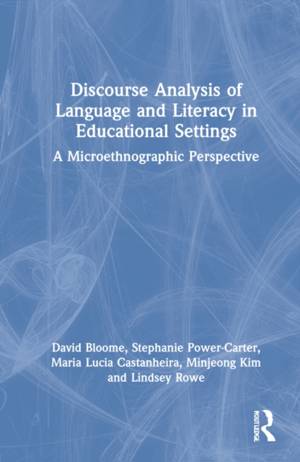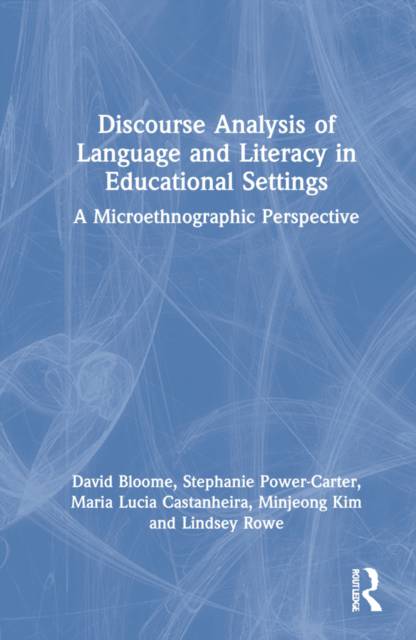
- Afhalen na 1 uur in een winkel met voorraad
- Gratis thuislevering in België vanaf € 30
- Ruim aanbod met 7 miljoen producten
- Afhalen na 1 uur in een winkel met voorraad
- Gratis thuislevering in België vanaf € 30
- Ruim aanbod met 7 miljoen producten
Discourse Analysis of Languaging and Literacy Events in Educational Settings
A Microethnographic Perspective
David Bloome, Stephanie Power-Carter, W Douglas Baker, Maria Lucia Castanheira, Minjeong Kim, Lindsey W RoweOmschrijving
This book provides a comprehensive introduction to the use of microethnographic discourse analysis for researching, theorizing, and reconceptualizing the uses of language and literacy in educational settings. The authors apply an ethnographic perspective to discourse analysis to emphasize how teachers and students use spoken and written language to construct knowledge, opportunities for learning, and social relationships. The authors demonstrate how microethnographic discourse analysis at different levels of scale can provide deeper understandings into the nuanced, complex social interactions and relationships that exist in and across educational contexts, including meaning-making, literacy practices, power relations, and the social construction of personhood.
Each chapter offers philosophically and theoretically grounded principles for using microethnographic discourse analysis and example cases that reflect the principles presented. Ideal for researchers, teacher educators, and teachers, this essential text on discourse analysis, languaging, and literacy provides a grounding to further examine critical questions challenging educators.
Specificaties
Betrokkenen
- Auteur(s):
- Uitgeverij:
Inhoud
- Aantal bladzijden:
- 266
- Taal:
- Engels
Eigenschappen
- Productcode (EAN):
- 9780367465896
- Verschijningsdatum:
- 31/03/2022
- Uitvoering:
- Hardcover
- Formaat:
- Genaaid
- Afmetingen:
- 152 mm x 229 mm
- Gewicht:
- 709 g

Alleen bij Standaard Boekhandel
Beoordelingen
We publiceren alleen reviews die voldoen aan de voorwaarden voor reviews. Bekijk onze voorwaarden voor reviews.











